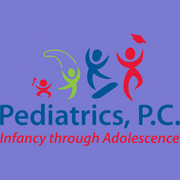
When you welcome a new baby into the family, we know that his or her health is top priority to you. Vaccinations help protect your family and community from dangerous but preventable diseases. Knowing what to get and when can be a bit confusing for new parents. To help guide you through what babies need, here is a brief look at the recommended infant immunization schedule.
What Vaccinations Are Important for Babies?
1. Hepatitis A
Hepatitis B is a severe liver disease spread from person-to-person contact with stool of infected; it can also be spread through food, water, or objects contaminated with Hepatitis A. Contraction can lead to loss of appetite, vomiting, severe stomach pains or diarrhea, and jaundice. Your pediatrician should administer HepA at 12 months of age and then the 2nd dose 6 months later.
2. Hepatitis B
Hepatitis B is a severe liver disease spread through contact with blood or bodily fluids. Contraction can lead to loss of appetite, vomiting, jaundice, and even liver failure. To prevent it, the HepB vaccine should be administered in three parts throughout infancy: at birth, 2 months, and 4-6 months.
3. Prevnar
The pneumococcal conjugate vaccine, also known as PCV or Prevnar, protects against deadly pneumonia. This disease is airborne and can be spread through direct contact as well. Babies should receive this preventative shot at 2, 4, and 6 months, and then again at 12-15 months.
4. Rotavirus (RV)
Unvaccinated children are at high risk for contracting rotavirus, which is the most common cause of diarrhea in infants. Many also experience dehydration due to fluid loss. Make sure your baby receives their RV vaccine at 2, 4, and 6 months.
5. Varicella
 Commonly referred to as chickenpox, varicella is a highly contagious airborne disease characterized by itchy blisters, rashes, and sores. Complications such as infection, pneumonia, and encephalitis may occur. Your pediatrician should administer the varicella vaccine between 12 and 15 months of age and then again at 4-5 years of age.
Commonly referred to as chickenpox, varicella is a highly contagious airborne disease characterized by itchy blisters, rashes, and sores. Complications such as infection, pneumonia, and encephalitis may occur. Your pediatrician should administer the varicella vaccine between 12 and 15 months of age and then again at 4-5 years of age.
6. MMR
Measles, mumps, and rubella are all targeted by the MMR vaccine. Each of these is a serious disease that can lead to debilitating life conditions or even death in the case of measles. Babies should receive their first preventative dose at some point between 12 to 15 months and then again at 4-5 years of age.
7. DTaP
The DTaP vaccinations protect against diphtheria, tetanus, and pertussis (whooping cough). Diphtheria may result in breathing problems and paralysis, tetanus causes painful muscle cramps, and whooping cough often results in hospitalization for infants. However, these diseases are preventable with three shots between two and six months and another at 15-18 months.
8. Hib
Often shortened to Hib, Haemophilus influenzae type b is a dangerous and sometimes fatal bacterial disease. Infants with Hib may develop meningitis, which can lead to brain damage and permanent deafness, as well as pneumonia and severe throat swelling. Have your pediatrician administer the Hib vaccine at 2, 4, and 6 months, before receiving their final dose between 12-15 months.
9. IPV (Polio)
IPV (polio) is a virus that can include flu-like illness and potentially could lead to permanent paralysis. Your pediatrician should administer the IPV at 2, 4, 6, and 18 months, and then a final dose at 4-5 years of age.
Vaccinations are critical to the wellbeing of your baby—and they should be administered under the care of a trusted doctor. Whether you need medical attention for your newborn, infant, school-age child, or preteen, the pediatricians at Pediatrics, P.C. of Lincoln, NE, are dedicated to providing compassionate health care to children of all ages. They know how to soothe your child’s worries while giving them the best treatment possible. Learn more about their immunizations online or call (402) 489-0800 to speak with a knowledgeable staff member.
About the Business
Have a question? Ask the experts!
Send your question

